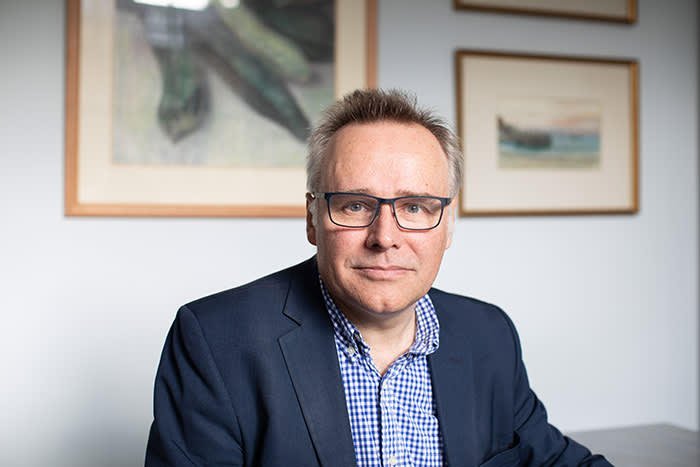Meir Wachs understood ahead of he applied to Oxford university’s Saïd Company School that he would almost certainly launch a business following finishing the MBA programme. “I started my to start with firm when I was 20,” claims the 32-yr-old American. “One of my aims heading into Saïd was to come across a different option.”
What Mr Wachs did not anticipate was that his new venture would be a social enterprise. Routemasters, the firm he co-founded with a classmate, works by using anonymised info from cellular cellphone alerts to aid municipalities in creating countries boost their public transportation devices.
For that he credits Saïd’s training on the UN’s Sustainable Advancement Plans (SDGs) by way of a core course on its MBA programme referred to as “Global Possibilities and Threats: Oxford” (Goto).
Mr Wachs claims the strategy was sparked by a dialogue with a fellow MBA university student, a Nigerian: “[He] was speaking about the struggles individuals in his nation have with transportation and that vacation there had grow to be a nightmare. We realised there was an option and turned our Goto undertaking into a prepare to aid slash CO2 emissions in transportation devices. It was a serendipitous second.”
Liable and ethical leadership is a crucial problem for MBA students, according to Tomorrow’s MBA, an once-a-year study by instruction market place exploration consultancy CarringtonCrisp.
In its most up-to-date review, of 600 potential business college students, 70 for every cent named ethical leadership as important to business instruction training and exploration. The up coming most important aspect was diversity and equality, named by sixty seven for every cent of respondents.
“Future students are likely to see accountable leadership as a essential facet that operates by way of business instruction training and exploration, not as a expert insert-on or elective,” claims Andrew Crisp, CarringtonCrisp co-founder.
They want “exposure to not-for-income or NGOs as aspect of their MBA, no matter whether which is a undertaking or a placement”. Further, Mr Crisp claims, a bigger amount of students than previously are heading into careers in the not-for-profit or NGO subject.
At the exact same time, the change toward MBA students transferring into social enterprises or non-governmental organisations (NGOs) that search for to advertise sustainability or ethical business observe appears to be a calculated a person.
In accordance to Mr Crisp, lots of students “are nevertheless next common careers . . . in aspect driven by the want to spend back again their fees of study”.
Goto is a obligatory aspect of Saïd’s MBA curriculum. It was introduced seven decades back by Peter Tufano, the dean, as a way of ingraining the 17 SDGs in the school’s training programme.
Every single yr the course focuses on a unique SDG, using tutorials and periods on abilities advancement to persuade students to create a undertaking to deal with the difficulty. This yr the students are hunting at local climate action. Prior topics involve the long run of do the job, demographic alter, h2o administration and markets, and the long run of energy.
“It is a major aspect of the MBA and govt MBA knowledge at Saïd,” claims Peter Drobac, director of the Skoll Centre for Social Entrepreneurship at Oxford and co-convener of the Goto programme this yr. “Regardless of the market they go into, students will be impacted by it.”
Other schools get unique ways to the training of sustainability, not essentially generating it a core course module.
In Spain, IE University, which is the FT’s husband or wife in Headspring, an govt advancement venture, has introduced a “10-Yr Challenge” marketing campaign, with a determination to devote €10m in excess of the up coming decade. One particular attribute of the marketing campaign is that the establishment boost its sustainability.
The university presents 1,800 hours a yr of training linked to sustainability for its graduate and undergraduate students. Its objective is to double this by 2030, by which time it aims to have made the complete establishment alone carbon neutral.
The school’s MBA students create social innovation influence initiatives as aspect of their experiments. These can be aimed at generating a optimistic influence on a firm, group or modern society.
Most of these MBA students are targeted on accelerating their careers in the corporate earth, according to Shuo Xing, a director of expertise and careers at IE, who manages social influence and international advancement initiatives. But, she adds, although engaged in for-profit ventures, they may perhaps also be hunting for opportunities to further the sustainability agenda.
“This new worldwide agenda has introduced the private sector and non-income closer than at any time, making new job opportunities,” she claims.
UN companies, she notes, are hunting for MBA candidates “to aid with digital transformation, checking and analysis, and private-sector engagement strategies”.
Meanwhile, “social enterprises, influence expenditure and sustainability consulting are hunting for candidates with worldwide profiles, and entrepreneurial and sustainability mindsets.”
Routemasters, the venture Mr Wachs co-founded, made use of help from Saïd’s incubator facility for early-phase ventures. It now has its own premises and 6 team, based in Oxford.
It has created software program to system info on how individuals go in presented places and is in discussions with a amount of town transportation authorities in Europe, Africa and North America about using its devices, Mr Wachs claims.
The business has not started charging for its expert services but, he adds, if it will become a practical venture, a sizeable aspect of the credit score will be due to his MBA knowledge at Saïd.
“The business college furnished the sandbox where these types of entrepreneurial conversations take place,” Mr Wachs claims.








More Stories
Lawyers see crypto regulation coming in 2023 because industry needs to rebuild trust • TechCrunch
Important Factors To Consider For Discrimination Case Attorney
Elon Musk Leads By Example, Says He Coughed Up $8 For His Twitter Blue Check Mark